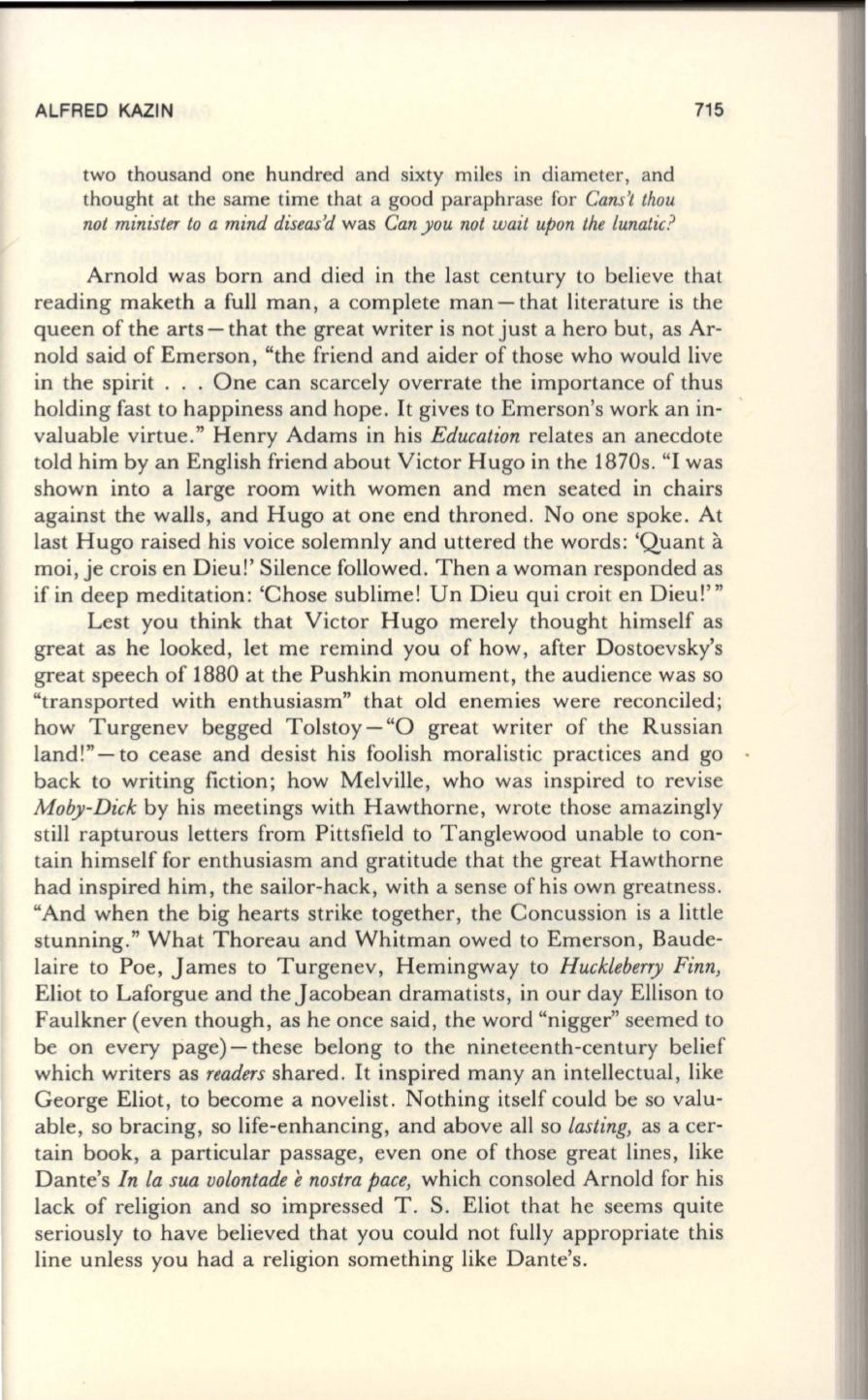
ALFRED KAZIN
two thousand one hundred and sixty miles in diameter, and
thought at the same time that a good paraphrase for
Cans't thou
not minister to a mind diseas'd
was
Can you not wait upon the lunatic?
715
Arnold was born and died in the last century to believe that
reading maketh a full man, a complete man- that literature is the
queen of the arts- that the great writer is not just a hero but, as Ar–
nold said of Emerson, "the friend and aider of those who would live
in the spirit ... One can scarcely overrate the importance of thus
holding fast to happiness and hope. It gives to Emerson's work an in–
valuable virtue ." Henry Adams in his
Education
relates an anecdote
told him by an English friend about Victor Hugo in the 1870s. "I was
shown into a large room with women and men seated in chairs
against the walls, and Hugo at one end throned. No one spoke. At
last Hugo raised his voice solemnly and uttered the words: 'Quant
a
moi, je crois en Dieu!' Silence followed. Then a woman responded as
if in deep meditation: 'Chose sublime! Un Dieu qui croit en Dieu!"'
Lest you think that Victor Hugo merely thought himself as
great as he looked, let me remind you of how, after Dostoevsky's
great speech of 1880 at the Pushkin monument, the audience was so
"transported with enthusiasm" that old enemies were reconciled;
how Turgenev begged Tolstoy-"0 great writer of the Russian
land!"- to cease and desist his foolish moralistic practices and go
back to writing fiction; how Melville, who was inspired to revise
Moby-Dick
by his meetings with Hawthorne, wrote those amazingly
still rapturous letters from Pittsfield to Tanglewood unable to con–
tain himself for enthusiasm and gratitude that the great Hawthorne
had inspired him, the sailor-hack, with a sense of his own greatness.
"And when the big hearts strike together, the Concussion is a little
stunning." What Thoreau and Whitman owed to Emerson, Baude–
laire to Poe, James to Turgenev, Hemingway to
Huckleberry Finn,
Eliot to Laforgue and the Jacobean dramatists, in our day Ellison to
Faulkner (even though, as he once said, the word "nigger" seemed to
be on every page)- these belong to the nineteenth-century belief
which writers as
readers
shared.
It
inspired many an intellectual, like
George Eliot, to become a novelist. Nothing itself could be so valu–
able, so bracing, so life-enhancing, and above all so
lasting,
as a cer–
tain book, a particular passage, even one of those great lines, like
Dante's
In la sua volontade
e
nostra pace,
which consoled Arnold for his
lack of religion and so impressed T. S. Eliot that he seems quite
seriously to have believed that you could not fully appropriate this
line unless you had a religion something like Dante's.


